×


We have detected your country as:
Please click here to go to the USA website or select another country from the dropdown list.
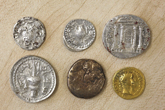
{image_1}
A COLLECTION OF 120 coins was unearthed in a cave in the Judean Hills not far from ancient Betar, where Jewish Bar-Kochba rebels took their last stand against the Romans in 135 AD. It is the largest cache of Bar-Kochba-era coins found in one location.
Continue Reading »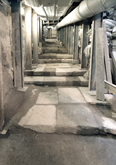
{image_1}
THE SOUTHERNMOST tip of Second Temple period-Jerusalem’s central thoroughfare was uncovered, revealing that era’s style of alternating wide and narrow steps.
Continue Reading »
{image_1}Hizbullah Chief Sheikh Hassan Nasrallah criticized moderate Arab nations which support normalization with Israel, saying that Israel was “a cancer…a metastasis which must be eradicated.”
Continue Reading »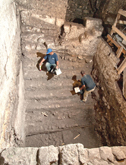
{image_1} A LARGE AND IMPRESSIVE MIKVEH (ritual bath) from the end of the Second Temple period was uncovered in an Israel Antiquities Authority (IAA) excavation within the Western Wall tunnels. The mikveh is part of one of the most magnificent structures from the Second Temple period ever to be uncovered. From an architectural and artistic standpoint, there are similarities between this structure and the three magnificent compounds that King Herod built on the Temple Mount.
Continue Reading »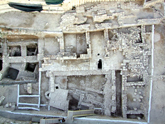
{image_1}
This fourth-century, two-storey Roman mansion—covering c. 1,000 square meters (10,763 square feet) and first thought to be from the Second-Temple period—is rewriting history. “Up until now, archaeologists believed that the city’s Roman ruins extended only to the edge of the Old City walls constructed by the Ottomans.
Continue Reading »
{image_1}TRADITIONAL SLEEPING PILLS have many side effects. Now an Israeli company is
introducing a new drug that works with the body’s natural processes to
induce sleep. Sleeping pills often come with risks: inducing
dependency, withdrawal symptoms, and occasionally even cognitive
impairments such as short-term amnesia. Not so with Circadin,
a new drug produced by Neurim Pharmaceuticals.

{image_1}WHILE ALL OF US KNOW WHAT THE ‘WWW’ really stands for, there are times when we
could be excused for believing that it refers to a “world wide
wait”—such are the sluggish response times you often contend
with. But Ofer Gadish, cofounder of FasterWeb, created a better way to
connect to Web sites. The result? Gadish’s FasterWeb application, which
promises to make Web surfing up to 10 times faster.
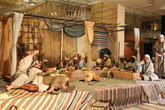
By Marnus Schoeman, BFP Group & Guest Relations Manager
{image_1}This has been a question asked for centuries from generation to generation among the Jewish people during the Pesach (Passover) seder meal. You might wonder, why ask this question so long after Passover, which is celebrated in March–April? In August, The Land of the Bible Experience—an educational ministry of Bridges for Peace that provides Hebraic teaching through dramatic presentations—seized a wonderful opportunity to enact our Passover play to a tour group of 585 Nigerian Christians!
Continue Reading »
|
{image_1} |
|---|
FIVE ISRAELI FIRMS have been chosen as examples of companies whose clean technology investments are shaping tomorrow’s world. The Cleantech Group together with the British newspaper The Guardian announced the Global Cleantech 100—the first ever awards to highlight the most promising clean technology startup companies around the world. The five companies made Israel the only country in the Middle East to have firms nominated and placed the country in fourth place overall in its total number of companies, coming after the United States, the United Kingdom, and Germany.
Continue Reading »
{image_1}www.israelimages.com / Marel Stanton |
|---|
WHILE ON A TOUR IN ISRAEL, a tourist from the Philippines, Ruth Castro (71), found out that her house had been totally demolished by a typhoon—including a much-loved grand piano. Was she devastated? Not the least bit. The unflappable pilgrim was convinced that her “cup runneth over.” Where did she run to thank Jesus for sending her on a pilgrimage to the Holy Land at such a perilous hour, saving her from certain death?
Continue Reading »All logos and trademarks in this site are property of their respective owner. All other materials are property of Bridges for Peace. Copyright © 2025.
Website Site Design by J-Town Internet Services Ltd. - Based in Jerusalem and Serving the World.